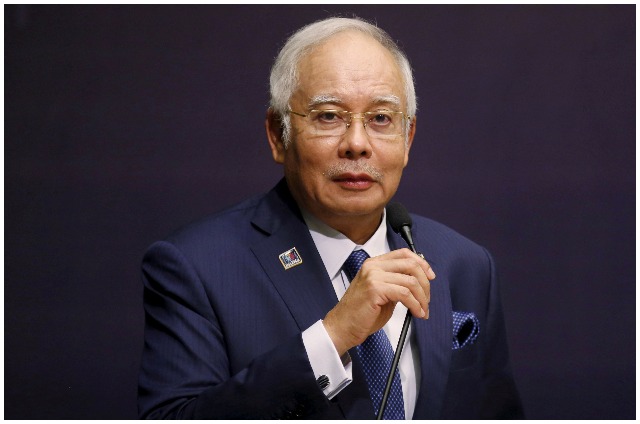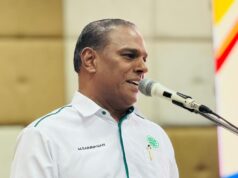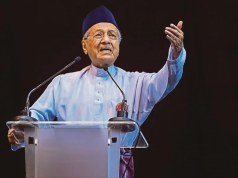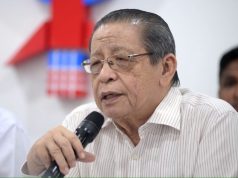

Judge Mohd Nazlan Mohd Ghazali in his judgment said the defence had failed to properly appreciate the application of the law to the factual matrix relevant to the abuse of position charge under Section 23(1) of the Malaysian Anti-Corruption Commission Act 2009 (MACC).
“The interest of the accused in SRC in the context of Section 23(1) is not his control of SRC without more. That is merely the premise of the interest,” said the judge, who sentenced Najib to 12 years’ jail and a RM210 million fine after he was found guilty of all seven charges related to the misappropriation of RM42 million of SRC funds.
He said the accused’s participation at the Cabinet meetings which approved the government guarantees for the RM4 billion financing to SRC from Retirement Fund Incorporated (KWAP), which was in turn quickly drawn down to SRC, directly caused the accused to be in a position of access to much greater funds of the company, at any time and as and when he deemed necessary, including to the RM42 million that flowed into his accounts in late 2014 and early 2015.
The judge further said the reason for the participation was precisely the motivation for the intention to have access to much larger funds in SRC, which included the RM42 million.
“The RM42 million received on Dec 26, 2014 and Feb 10, 2015 was as such a direct cause of the accused’s participation at the Cabinet meetings. Such sum is the ‘gratification’ as per Section 23 of the MACC Act charge against the accused.
“The factual matrix in the instant trial is that the parties involved are the government (the Cabinet) and SRC. The accused headed the government and also had a private interest in SRC which he controlled,” he said.
Justice Mohd Nazlan said the approvals by the Cabinet benefited SRC, which was controlled by the accused himself.
He said there was no necessity for there to be any arrangement between the accused and any other party for gratification to be received to prove the presence of criminal intention.
“It is worthy of emphasis that here, the accused had an interest in SRC. He participated at the Cabinet meetings which approved the SRC’s application for the government guarantees.
“And the said decision to approve directly put the accused in a position that had access to more funds of SRC.
“The gratification in terms of the advantage immediately became an entitlement of the accused, only for him to decide as and when it was essential for such funds to be channelled for his own use,” he said.
The judge further said he had analysed the national interest contention and the relevance of Section 23(4) at the end of the prosecution case.
He said he doubted that the accused could be deemed as an officer in SRC and the representative of the government and also found that in any event, the complete answer to the defence’s submission on the issue was that Section 23(4) could not apply in this case because it has not been shown that the actions taken by the accused which led to the decision by the government to grant the two government guarantees was done in the interest or the advantage of the government.
Justice Mohd Nazlan said the accused’s defence did not proffer anything new of substantive worth and was not able to change the finding at the end of the prosecution case that the actions by the accused were not for the advancement of national interest and that evidence did not warrant the invocation of Section 23(4) of the MACC Act.
Touching on the conduct after the drawdown of the financing from KWAP, the judge said subsequent to the release of the entire RM4 billion loan to SRC, the conduct of the accused seems inconsistent with his involvement prior to.
“The cross-examination of the accused revealed in clear fashion a number of conclusions that do little to bolster his defence.
“First, there is no evidence that shows that the accused was even concerned with the use of the funds loaned to SRC by KWAP, both in terms of the fact that the monies were sourced from the country’s retirement pension fund, hence part of the public funds, as well as whether the pursuit of promoting the national energy strategic initiatives was anywhere closer to be met.
“The accused’s lack of action to recover the funds stated to be frozen by the Swiss authorities for alleged money laundering is therefore very puzzling and is instead much more consistent with the conduct of one who did not want the problem resolved given his own complicity in the unlawful transfer of the funds in the first place, as evidenced in the shareholder minutes of MOF Inc. notwithstanding his claim that these minutes were not genuine,” he said.
He said it was clear by the end of 2015 that SRC was facing financial difficulties and the MOF memo of Nov 4, 2015 raised the need for the first of what later resulted in three short-term loans to SRC to avoid KWAP declaring an event of default against SRC that would call upon the government guarantees.
The judge said the accused was supportive of the efforts on the short-term loans but did not even summon the directors of SRC to provide an explanation to him despite being the advisor emeritus and the Prime Minister who had vast powers under the memorandum and article of association of the company, including in nominating the directors to serve the board of SRC in the first place.
“And the accused also disagreed with the assertion that the RM4 billion had since disappeared and lost, insisting that that fact has not been established. Never mind the accused himself offered no evidence to show that he had taken any steps to ascertain what exactly has happened to the said funds.
“Furthermore, the accused could not provide a clear answer to the question whether he was satisfied with the progress of SRC after the first drawdown of the RM2 billion before agreeing to support the second RM2 billion loan. There was a period of about six months in between the two,” he said.
The judge said the accused claimed that he did ask and was told that the monies had been set aside for immediate investment requirements, but did not inquire whether the loan remained in cash.
He said according to the accused that was a matter for the board of directors to oversee and he also disagreed that there was a duty to update on the status of the disbursement of the first loan secured by the first government guarantee when the proposal for the second government guarantee was tabled at the meeting of the Cabinet.
“Again, I find this hard to fathom when the source of the funding was the pensions fund and the sum involved was extremely large by any measure.
“As such, in my judgment, having examined the defence of the accused and considered all the defence in this case, I find that the defence has not succeeded in rebutting the presumption under Section 23(2) of the MACC Act on a balance of probabilities or in raising a reasonable doubt in the prosecution case in respect of this charge against the accused under Section 23(1) of the MACC Act,” he said.
— BERNAMA










